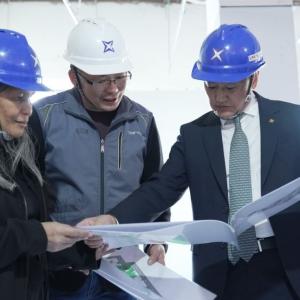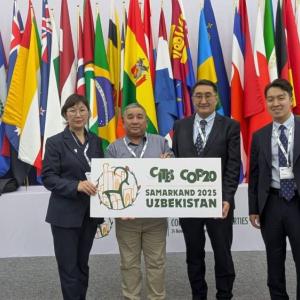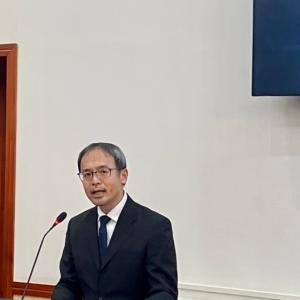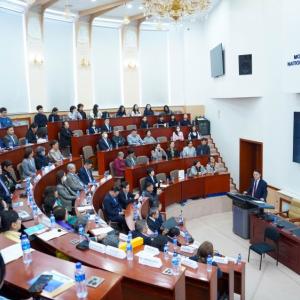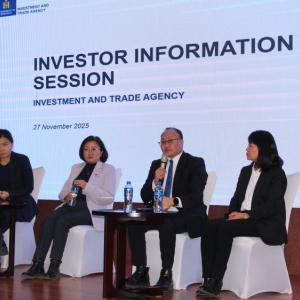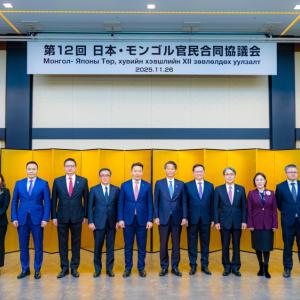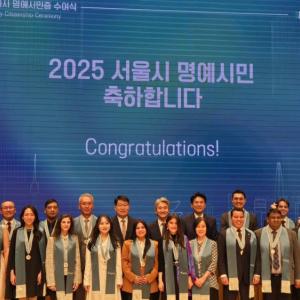Private sector’s role for sustainable development discussed
EconomyUlaanbaatar/MONTSAME/.
On April 26, the Mongolian National Chamber of Commerce and Industry (MNCCI) organized a national forum themed ‘The private sector’s
role in ensuring the sustainable development’ in the Corporate Hotel.
Co-organized
with the Konrad Adenauer Foundation, Bloomberg TV Mongolia, National Industrial
Council and ‘OSHMI Group’ LLC, the forum brought together about 300 delegates
from governmental organizations, NGOs, specialized unions, international
organizations, researchers and scholars. They discussed issues and exchanged
their wide-range views on business organizations’ role in ensuring the
sustainable development goals, the public-private partnership (PPP), a policy
on backing the national production and wealth-makers and a renovation of legal
environment.
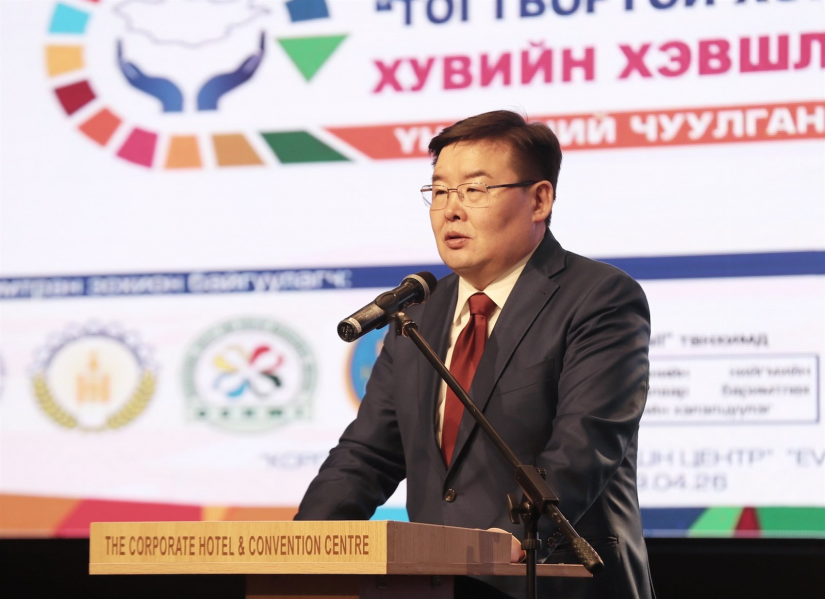
Mr. G.Zandanshatar, Speaker
of Parliament, pointed out that the Three-Pillar Development Policy approved by
the government in 2017 focuses on three main objectives--governmental reforms,
economic reforms and social policy reforms. “In other words, the main principle
of this policy is to diversify the national economy, abolishing high dependency
from the mining industry,” said the Speaker, underlining the MNCCI’s role will
be in the first consideration for improving the business environment in
Mongolia.
“National producers and wealth-makers are the engine for development. This engine should go effectively and properly without a hitch, and it needs governmental support. Therefore, parliament intends to adopt package laws on backing wealth-makers. In the first turn, a working group led by Ts.Garamjav MP has been set up to formulate a bill on supporting the national production and wealth-makers, so we plan to carry out an open hearing regarding the bill, and I would like to invite to this hearing,” the Speaker said. Then he asked all business people and entrepreneurs to submit their proposals and views about the business environment to parliament and government after consolidating them through MNCCI or specialized unions. “This kind of unanimous decision based on well-grounded proposals will produce fruitful outcomes. We should build up more creative and businesslike tendency,” he said.
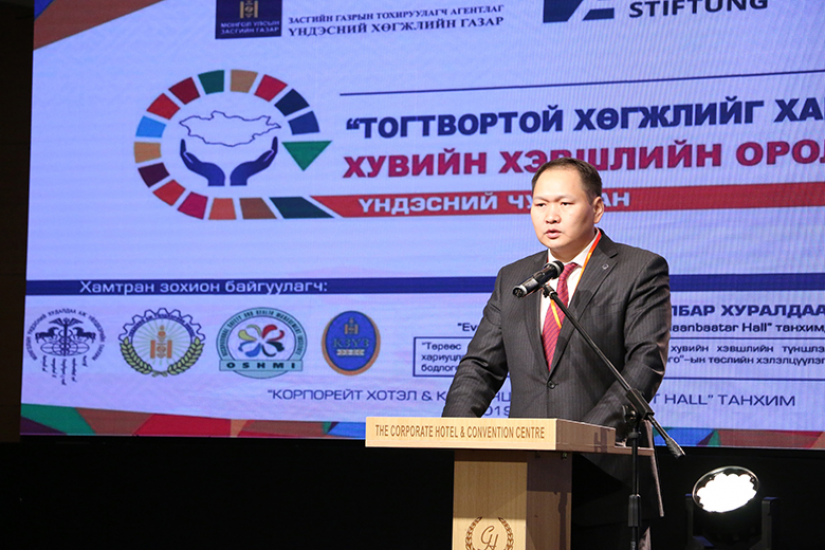
Mr. O.Amartuvshin, Chairman of MNCCI, said “The sustainable development and the
corporate social responsibility (CSR) are closely connected. It is vital for
the government to create a system for backing the private sector. The CSR is
not a single-grant donation or gift. But instead, this is a solution with joint
efforts to tackle social issues.”
According to the 2018 surveys
on CSR, 88 percent of those companies included in the TOP-100 enterprises
possess a certain policy document of social responsibility, and half of them
adhere to a master policy. Furthermore, 66 percent of the companies have social
responsibility foundations, and also 63 percent--spend money of above MNT 50
million for action of social responsibilities.
“The MNCCI has been
dynamically working to distribute the best experiences of companies of
sustainable development and CSR and also has made an initiative of joining
international networks. For instance, joining the UN Compact Global Compact is
one of the important works of MNCCI. Today, the UN Global Compact has joined
over 9,000 companies of 166 countries,” Mr. Amartuvshin said.
He added that the national forum produced two important initiatives. The first one is to deliver a voice of business organizations since the private sector’s role is vital for the sustainable development, and the second one is to distribute the voice of enterprises, which is definitely acceptable to the government when they could correlate their activities, he said.
The
forum lasted with three sub-meetings in themes 'State policy on corporate
social responsibility', 'Policy on public-private partnership' and 'Discussion
on bill on legal status of specialized unions'.
Source: MNCCI
 Ulaanbaatar
Ulaanbaatar




























